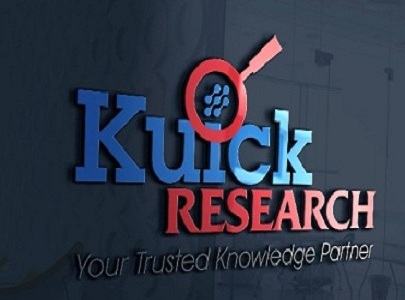
Cancer is ever fastest growing global epidemic and one of the leading causes of death in the developed countries. It was observed that year 2015 alone witnessed more than 10 million new cancer cases. The number of new cancer cases is predicted to rise to 22 million within the next two decades. More than 60 percent of the world’s new cancer cases occur in Africa, Asia, and Central and South America; 70 percent of the world’s cancer deaths also occur in these regions. The future burden will probably be even larger because of the adoption of western lifestyles, such as smoking, poor diet, physical inactivity, and fewer childbirths, in economically developing countries.
Owing to this, the cancer segment of pharmaceutical industry is most studied and highly competitive in nature. The chemotherapeutic products are extremely diverse ranging from monoclonal antibodies, vaccines, immunomodulators, and hormonal therapies to bispecific monoclonal antibodies including the miscellaneous drugs. All the aforementioned drugs are formulated in a way to be step ahead in targeted approach from their predecessor. Nevertheless, all the above mentioned therapies have their own limitations; either they should be given in conjunction with other therapies, require high dose or have got enormous side effects and so on. They too have different pharmacological parameters, overlapping boundaries and cost effectiveness.
One of the major segments of cancer therapy is occupied by the angiogenesis inhibitors. The market for angiogenesis inhibitors is quiet optimistic as they have emerged as the new targeted therapy for the cancer treatment. These molecules due their specificity are gaining a lot of manufacturer’s interest. With advent of new and improved technology, angiogenesis inhibitors therapy witnessed a drastic transition and is becoming more acceptable due to its site specific approach. They have become a critical component of clinical treatment procedure for a variety of indications.
Angiogenesis is an important hallmark of tumor development. Hence, targeting angiogenesis is for sure help to eradicate the cancer. Similarly, metastasis is now a validated target for cancer treatment, the overall benefits of anti-angiogenic drugs from the perspective of impacting survival have left much to desire, endorsing a need for developing more effective therapeutic regimens. The anti angiogenic drugs are being combined with established conventional chemotherapeutic drugs to produce the desirable effect. There are now several agents available in the market such as bevacizumab that target the tumor vasculature through different pathways, either by inhibiting formation of the tumor neovasculature or by directly targeting the mature tumor vessels.
Although it has been found that their effects are compounded by their synergistic use with conventional chemotherapy rather than individual agents. For instance, an antiangiogenic drug such as bevacizumab is potent enough to bring about a transient functional normalization of the tumor vasculature. So, in order to get the maximum results out of it; this can be co-administered with chemo/radiotherapy.
Therapeutic innovations in various segments have made the transition from human conception to clinical reality over the past two decades and reached from labs to bedside of the patients. Now, many of angiogenesis inhibitors are being tested as adjuvant or first-line therapies to determine their efficacy in improving survival. Although majorly angiogenesis inhibitors are used as supportive therapy rather than streamline drugs as they take huge time to even show reasonable results. The market is no doubt flourishing and is sure to increase many folds as with due acceptance of clinicians and patients due to their targeted effect.
In future, the information drawn from genome medical science and genome-informatics that clearly identifies the disease centric antigens valuable for medical treatment is being employed to develop the therapy using mAbs. Currently, the more attention is getting paid toward targeted therapy. Several angiogenesis inhibitors, alone and in combination with other conventional therapies, are being tested in phase I and phase II clinical trials at the moment. The health market in coming years is sure to get loaded with BsAbs with prior approval of these prospective drugs.
Hence, it is quiet predictable that global market for angiogenesis inhibitors for cancer treatment is expected to register a healthy annual market growth rate during the forecast period. The healthy growth rate can be related to the cumulative effects such as fast technological development, upsurge in the number of incidences of cancer patients, rise in the increasing adverse effects from chemotherapy and increase in the prevalence of cancer patients around the globe.
“Global Cancer Angiogenesis Inhibitors Market & Clinical Pipeline Insight” Report Highlights: